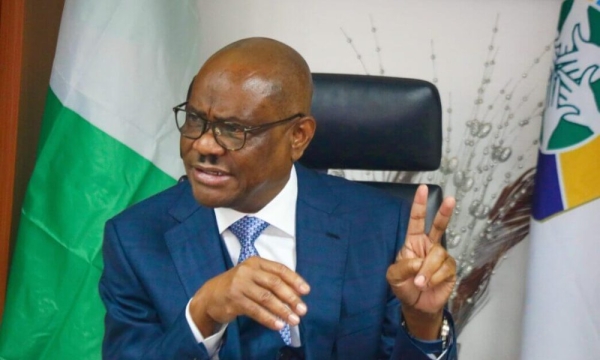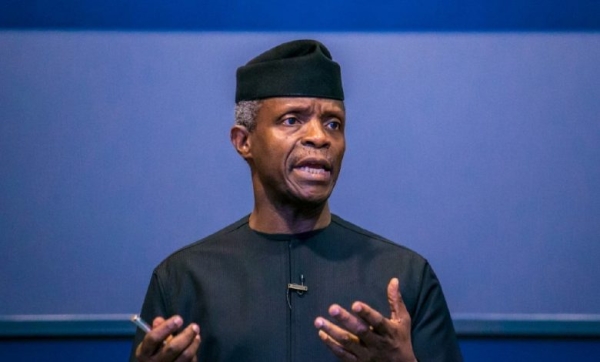TOP NEWS
Reuben's View
Latest News
Search
MOST READ
-
‘African Giant Burna Boy is dead’ – Singer says
-
Peter Obi can’t lead Nigeria - LP factional chairman, Okafor
-
85% Of Nigerian Foreign Scholarship Students Don’t Return - Minister Laments
-
2027: Yahaya Bello distance self from running against Tinubu
-
Amaechi, Imoke Appointed to Key Roles in New Opposition Coalition Ahead of 2027
-
40 gunmen raid popular Abuja estate, machete guards, rob residents
-
Judge blocks US order barring Harvard from enrolling foreign students
-
DSS compensates Bizman with N20m, free medicare over accidental shooting
-
Edo Police arrest Gov Okpebholo aide’s driver over alleged sexual assault of 15-year-old girl
-
Atiku, Sambo Meets Tinubu’s Ex-ally, Rauf Aregbesola
-
Many feared dead in Nyanya-Mararaba road accident in Abuja
826 times -
Akpabio Gives Out N2bn Cash Grants, Vehicles, Equipment, Scholarships to Constituents
798 times -
[OPINION] Let’s move JAMB’s Oloyede to INEC - Tonnie Iredia
670 times -
Live Vultures, Tortoises ‘Buried’ Inside – Abia Govt Speaks on Why Otti Has Avoided New Govt House
576 times -
What I Told Tinubu After He Asked Me To Make Peace With Fubara – Wike
554 times -
Nigeria Will Be Worse Than Somalia In The Next Few Years’ – Pat Utomi
547 times -
Hardship: We’re all sitting on kegs of gunpowder – Obasanjo
511 times -
World War 3: UK, France, Canada Warn Israel Against Further Military Action In Gaza
495 times -
“Justice is at risk” – Osinbajo raises alarm, says Nigeria’s legal profession crumbling under corruption
494 times -
Nigeria Could Be Looking At Winning Team, If Atiku, Obi And El-Rufai Align’ – PDP
448 times








![[OPINION] Zulum And The Surge In Insurgency - Reuben Abati [OPINION] Zulum And The Surge In Insurgency - Reuben Abati](https://reubenabati.com.ng/cache/mod_bt_contentslider/ad6e52c43f66e3cf537b06ad38aa93b6-8ac05a2894b5e82aeee611e792497153_XL.jpg)
![[OPINION] Defections And Threat Of One-Party State - Reuben Abati [OPINION] Defections And Threat Of One-Party State - Reuben Abati](https://reubenabati.com.ng/cache/mod_bt_contentslider/e16351efb50f01266cc28b7377bd5e83-90b1922af682fff68852fa7fab5a4331_XL.jpg)
![[OPINION] Pope Trump, Adebanjo And Other Stories - Reuben Abati [OPINION] Pope Trump, Adebanjo And Other Stories - Reuben Abati](https://reubenabati.com.ng/cache/mod_bt_contentslider/a9c28326249471b0c6d135375d9aa6d3-66656381f38ceca0faf1a84f4c1885dd_XL.jpg)
![[OPINION] CBEX Wealth Chasers, NDIC And The Fate Of Depositors - Reuben Abati [OPINION] CBEX Wealth Chasers, NDIC And The Fate Of Depositors - Reuben Abati](https://reubenabati.com.ng/cache/mod_bt_contentslider/e7c29125e793371f688b9def0c150948-867aa1263f279020e1b930969b024a70_XL.jpg)
![[OPINION] Pope Francis (1936 – 2025) - Reuben Abati [OPINION] Pope Francis (1936 – 2025) - Reuben Abati](https://reubenabati.com.ng/cache/mod_bt_contentslider/9df20a858100040a45e2fc6915d65f41-c0395aa98d8919afead20f020215aa2b_XL.jpg)
![[OPINION] Plateau, Tsiga and Trump - Reuben Abati [OPINION] Plateau, Tsiga and Trump - Reuben Abati](https://reubenabati.com.ng/cache/mod_bt_contentslider/d4ff657a4976c08f133a5993db7ca3de-076f7f795e47e1dc74a28ca93d3c698e_XL.jpg)
![[OPINION] The Uromi 16 And The Problem With Nigeria - Reuben Abati [OPINION] The Uromi 16 And The Problem With Nigeria - Reuben Abati](https://reubenabati.com.ng/cache/mod_bt_contentslider/848d0c6943c9a9cb7639e8f5640d2cbf-4b585f7414a3fc875b761851d4c5fcd4_XL.jpg)
![[OPINION] Breakfast With The Soludos - Reuben Abati [OPINION] Breakfast With The Soludos - Reuben Abati](https://reubenabati.com.ng/cache/mod_bt_contentslider/a98b5c30f61dcb10378fdba9f5e472ab-33b747862875f50d863e709f5955da5d_XL.jpg)
![[OPINION] The Emerging Coalition Against Tinubu/APC - Reuben Abati [OPINION] The Emerging Coalition Against Tinubu/APC - Reuben Abati](https://reubenabati.com.ng/cache/mod_bt_contentslider/ddd6416fbaa008a5bcbc568f0e3c8857-02972c9f0dee40a6ad85830afbb49758_XL.jpg)
![[OPINION] Nasir El-Rufai’s Defections: PDP, CPC, APC, SDP - Reuben Abati [OPINION] Nasir El-Rufai’s Defections: PDP, CPC, APC, SDP - Reuben Abati](https://reubenabati.com.ng/cache/mod_bt_contentslider/817d1e0c4d951b18f15f406968204870-61d46cc1859ac5d4f70406214a7d7e4f_XL.jpg)
![[OPINION] A World Of Godfathers - Reuben Abati [OPINION] A World Of Godfathers - Reuben Abati](https://reubenabati.com.ng/cache/mod_bt_contentslider/f282a08e8e116be2577cc430882505bc-6d66582218d28730d47a7b9a32e18004_XL.jpg)
![[OPINION] Babangida’s Book - Reuben Abati [OPINION] Babangida’s Book - Reuben Abati](https://reubenabati.com.ng/cache/mod_bt_contentslider/c8905774fa75570e79f747809f6c142f-4452414e756ce827f8bc4b72b9376062_XL.jpg)
![[FULL TEXT] Press Conference On The Illegal Detention, Harassment And Persecution Of Ms. Hamdiyyah Sharif Over Her Demand For End To Violence In Sokoto](https://reubenabati.com.ng/media/k2/items/cache/726e353d077aa81f26ce434889f0752c_XL.jpg?t=-62169984000)
















![Nigeria ranks 4th in African countries for highest Schengen visa rejection [Full List]](https://reubenabati.com.ng/media/k2/items/cache/179e172057cdf2e473a05274838efcba_XL.jpg?t=-62169984000)





















![[FULL TEXT] Press Conference On The Illegal Detention, Harassment And Persecution Of Ms. Hamdiyyah Sharif Over Her Demand For End To Violence In Sokoto [FULL TEXT] Press Conference On The Illegal Detention, Harassment And Persecution Of Ms. Hamdiyyah Sharif Over Her Demand For End To Violence In Sokoto](https://reubenabati.com.ng/cache/mod_bt_contentslider/f1246aa655fd6ebb510a0862ef37b5c5-726e353d077aa81f26ce434889f0752c_XL.jpg)
















![Nigeria ranks 4th in African countries for highest Schengen visa rejection [Full List] Nigeria ranks 4th in African countries for highest Schengen visa rejection [Full List]](https://reubenabati.com.ng/cache/mod_bt_contentslider/fb19bb9254053708d9d0104fb0e4465b-179e172057cdf2e473a05274838efcba_XL.jpg)





















![[OPINION] Ishaq Oloyede’s Cross - Azu Ishiekwene [OPINION] Ishaq Oloyede’s Cross - Azu Ishiekwene](https://reubenabati.com.ng/cache/mod_bt_contentslider/6089b20aff9db5cb1ac215c473fc6e9b-64be1af5c1e0e889898b67f1c0aff65f_XL.jpg)


















![[OPINION] Will Professor Oloyede’s JAMB now listen? - Abimbola Adelakun [OPINION] Will Professor Oloyede’s JAMB now listen? - Abimbola Adelakun](https://reubenabati.com.ng/cache/mod_bt_contentslider/c59ce7b741bcea1905289a89059712d8-f3e895c45a5272ca3f65b6ac4f9ce5f8_XL.jpg)



![[OPINION] That mischievous ‘don’t vote, go to jail’ bill - Ikechukwu Amaechi [OPINION] That mischievous ‘don’t vote, go to jail’ bill - Ikechukwu Amaechi](https://reubenabati.com.ng/cache/mod_bt_contentslider/ace591578e507400786884a4eae64df1-a35e3096d56ef73c0aebc04f0aa7eb80_XL.jpg)



![[OPINION] How Doctored Images and Viral Falsehoods Are Undermining Trust in Nigeria’s Politics - Isaac Asabor [OPINION] How Doctored Images and Viral Falsehoods Are Undermining Trust in Nigeria’s Politics - Isaac Asabor](https://reubenabati.com.ng/cache/mod_bt_contentslider/3e193975deadc19124f608e324f89c7c-25bf35d6f3add701fad1a974964107a1_XL.jpg)
![[OPINION] On the Trail of Plateau Killers - Olusegun Adeniyi [OPINION] On the Trail of Plateau Killers - Olusegun Adeniyi](https://reubenabati.com.ng/cache/mod_bt_contentslider/354d503a9537d113f5e59f399047dbf9-4adf3d197cc818fd607ef25bbbd3fd8a_XL.jpg)



















![Osun Prison Break: FG releases Names of Escaped Inmates [PHOTOS] Osun Prison Break: FG releases Names of Escaped Inmates [PHOTOS]](https://reubenabati.com.ng/cache/mod_bt_contentslider/965d51e92f02d2eb337faeb41740f8f5-64c30f6315fc26bddce725f8fc4af83a_XL.jpg)



![[OPINION] A Word For Babachir Lawal - Femi Fani-Kayode [OPINION] A Word For Babachir Lawal - Femi Fani-Kayode](https://reubenabati.com.ng/cache/mod_bt_contentslider/dddad76f6e570a6b21d2fa3e60dda568-ef3c3ac64b2a46ff9f20b686c33c5ba3_XL.jpg)



![[OPINION] “If Na Your Papa Dey There Nko?” — One Man’s Street Truth That Nigeria Needs To Hear About Mr. President And Nigeria’s First Son - Isaac Asabor [OPINION] “If Na Your Papa Dey There Nko?” — One Man’s Street Truth That Nigeria Needs To Hear About Mr. President And Nigeria’s First Son - Isaac Asabor](https://reubenabati.com.ng/cache/mod_bt_contentslider/585db9c3f81a98d396f138d07653bcf5-1dec3bc1d0c4295cdfffd794ef33277d_XL.jpg)
![[OPINION] How Akpabio Turned Montesquieu’s Separation Of Powers On Its Head - Isaac Asabor [OPINION] How Akpabio Turned Montesquieu’s Separation Of Powers On Its Head - Isaac Asabor](https://reubenabati.com.ng/cache/mod_bt_contentslider/199b73a8f27186c86b6df285c5ff446c-8dcfdfed3a7a4f910e15527de4b7d663_XL.jpg)
![[OPINION] Peter Obi, Do Not Be The Desperate Graduate Job Seeker, It Is Presidency Or Nothing In 2027 - Isaac Asabor [OPINION] Peter Obi, Do Not Be The Desperate Graduate Job Seeker, It Is Presidency Or Nothing In 2027 - Isaac Asabor](https://reubenabati.com.ng/cache/mod_bt_contentslider/a1a4fa9a3657df7c83e9f87aa03c6eb9-2a5aff3dd0ba92b0e7127f97d75fc752_XL.jpg)
![[OPINION] Nigeria is no Nation of Tribesmen - Kayode Komolafe [OPINION] Nigeria is no Nation of Tribesmen - Kayode Komolafe](https://reubenabati.com.ng/cache/mod_bt_contentslider/12d646e29fa577d4b15e9596fc1b3c58-0fc4618c5d6e10f1a439498082de6d68_XL.jpg)









![[PRESS RELEASE] MAN Calls For Urgent Interest Rate Cut To Protect Nigeria’s Industrial Base [PRESS RELEASE] MAN Calls For Urgent Interest Rate Cut To Protect Nigeria’s Industrial Base](https://reubenabati.com.ng/cache/mod_bt_contentslider/035f5c1788ab5f188b2a16b77ac6c90d-1add765bb97c3e4d9dd9701bb40d967d_XL.jpg)












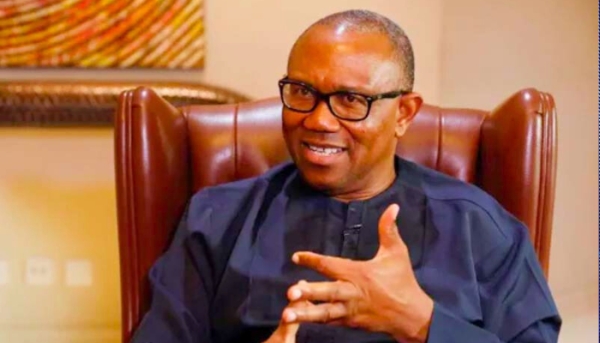
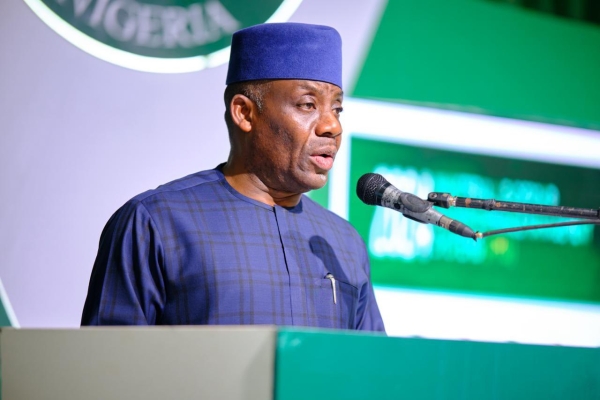

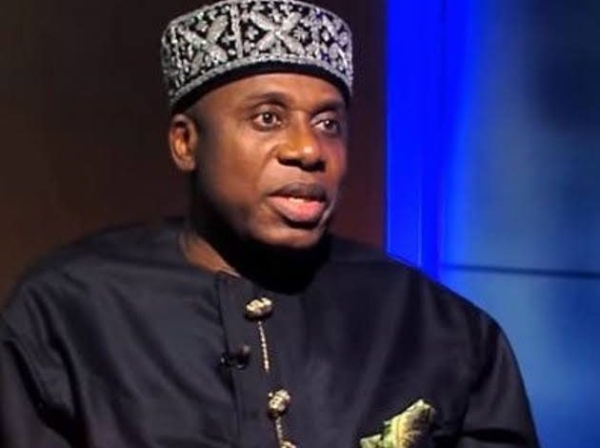
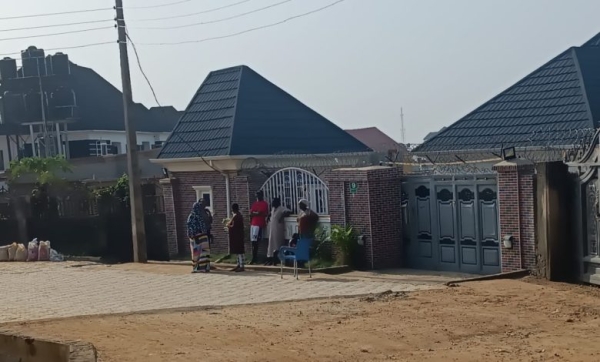






![[OPINION] Let’s move JAMB’s Oloyede to INEC - Tonnie Iredia](/media/k2/items/cache/2c2be4431a5aa89c2ef2c0d42d659e39_XL.jpg)

